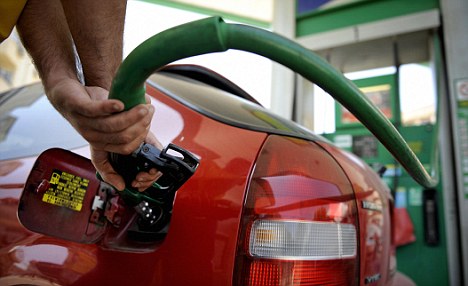Decreasing oil prices are not expected to harm the economic growth in Arab countries. In contrast, some economists believe that they might be in fact the best thing that could happen as falling prices will likely rebalance growth towards periphery countries, such as North African states. In theory, struggling economies should benefit from cheaper oil and thus recover from the negative repercussions of the Arab Spring while Gulf countries should not be hurt.
The price of Brent crude has fallen by almost 20 USD since June this year when the crude peaked. The current price is thus about 96 USD per barrel, which is the lowest since mid-2014. The driver behind falling prices is mostly the prospect of a lavish supply combined with a slowdown in China, one of the world’s top oil consumers. The change in price is the most significant shift for the Gulf countries since the onset of the financial crisis in 2008. However, these economies have also managed to accumulate substantial amounts of reserves, which is the main rationale behind the belief that cheaper oil will not do any harm to them. Middle East economist of Capital Economics, Jason Tuvey, confirms that “the recent sharp drop in oil prices is unlikely to be a major headache for the Gulf economies.” ”Large savings and low debt levels mean that fiscal policy won’t have to be tightened in most countries,” he further explains.
Economic forecasts suggest that the current 96 USD a barrel is likely not the end of the falling prices trend. There are predictions that prices would go further down to reach about 85 USD per barrel in two years’ time. In the meantime, less expensive oil means fairly good news for countries like Egypt, Tunisia, Jordan, Lebanon, or Morocco which “can benefit from a 4 billion USD annual reduction in their combined import bills for every 10 USD in the oil price”, Mr Tuvey estimates. These “savings” could also help these economies to minimize the aid that some of them are getting from Gulf countries, which provide financial assistance mostly to North African countries in a struggle to keep geopolitical stability in the region. Thus, the oil market has an ultimate chance to transfer wealth to poorer Arab countries through lower prices.




